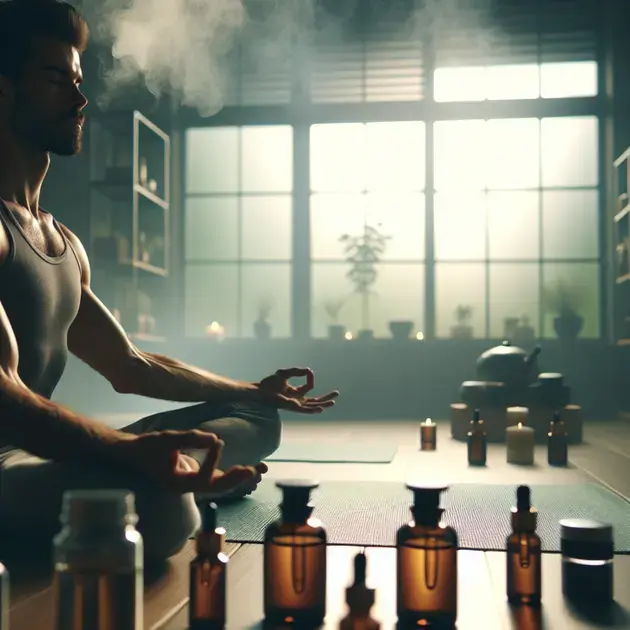Do you find yourself constantly feeling the urge to pee, even when you know your bladder is not full? This sensation can be not only uncomfortable but also disruptive to your daily life. In this article, we will explore the reasons behind why some individuals experience this persistent feeling of urgency.
Recent studies suggest that the feeling of constantly needing to pee could be linked to conditions such as overactive bladder, urinary tract infections, or even anxiety. Understanding the underlying causes can help you find ways to manage this sensation and improve your overall quality of life. Let’s delve deeper into the possible explanations for why you always feel like you have to pee.

Understanding the Urge: Exploring the Reasons Behind the Constant Feeling
Understanding the constant feeling of urgency to pee can be attributed to various factors. One common reason is overconsumption of liquids, especially those with diuretic properties like caffeine. Tracking your fluid intake using apps like WaterMinder can help you monitor and regulate your hydration levels.
Another cause of the constant urge to pee could be an underlying medical condition such as urinary tract infection (UTI) or interstitial cystitis. WebMD is a reliable source to learn more about these conditions and their symptoms. If you suspect a medical issue, consulting a healthcare professional is crucial for proper diagnosis and treatment.
Psychological factors like stress and anxiety can also contribute to the sensation of needing to urinate frequently. Practicing relaxation techniques through apps like Headspace or Calm can help manage stress levels and potentially reduce the urge to pee.
Exploring these different reasons behind the constant feeling of needing to urinate can empower individuals to take proactive steps towards improving their bladder health and overall well-being.
Unraveling the Link: How Conditions Affect the Urgency to Pee
Understanding how medical conditions can impact the urgency to pee is essential for effective management. Conditions such as diabetes and overactive bladder can lead to increased frequency and urgency to urinate. Websites like Mayo Clinic provide in-depth information on these conditions and their effects on urinary habits.
In some cases, medications for certain health issues can also influence bladder function and cause urinary urgency. It’s advisable to consult with a healthcare provider or pharmacist to understand the potential side effects of medications you are taking.
Performing pelvic floor exercises, as recommended by apps like Kegel Trainer, can help strengthen the muscles that control urination. By incorporating these exercises into your routine, you may be able to improve bladder control and reduce the urgency to pee.
By unraveling the link between medical conditions and the urgency to pee, individuals can tailor their lifestyle choices and treatment plans to better manage their bladder health.
Managing the Sensation: Strategies to Improve Quality of Life
Effectively managing the sensation of needing to pee can enhance your quality of life. One strategy is to practice bladder training, which involves gradually increasing the time between bathroom visits. The NHS website offers detailed guidance on how to implement bladder training effectively.
Avoiding bladder irritants such as alcohol, spicy foods, and artificial sweeteners can help reduce the frequency of urges to pee. Keeping a food diary using apps like MyFitnessPal can help identify and eliminate potential triggers that affect bladder function.
Incorporating mindfulness techniques into your daily routine, with the help of apps like Insight Timer, can aid in developing awareness of your body’s signals and promoting relaxation. By being more attuned to your body, you may be able to better control the urge to pee.
By implementing these strategies to manage the sensation of needing to pee, individuals can experience improved bladder function, reduced discomfort, and an enhanced quality of life.

The Physical Impact: How Stress Can Worsen the Urgency
Stress is a common factor that can have a significant impact on urinary urgency and bladder control. When stress levels are high, the body releases cortisol, commonly known as the stress hormone. This hormone can affect the bladder muscles, leading to an increased sense of urgency and potentially causing involuntary contractions that result in urgency incontinence. The constant pressure from stress can also contribute to inflammation in the bladder, further worsening the urgency symptoms.
In addition to the physical effects, stress can also exacerbate emotional responses to urgency issues. Feelings of anxiety and frustration can heighten the urgency sensation, creating a vicious cycle of stress and urinary urgency. It is essential to address stress management techniques to help alleviate the physical and emotional impact it has on bladder control.
There are various ways to mitigate the impact of stress on urinary urgency. Practicing relaxation techniques such as deep breathing, meditation, or yoga can help reduce stress levels and promote overall well-being. Engaging in regular physical exercise is another effective strategy to combat stress and improve bladder control. Additionally, seeking support from a therapist or counselor can assist in developing coping mechanisms for stress management.
By understanding the connection between stress and urinary urgency, individuals can take proactive steps to address both the physical and emotional aspects of the condition. Implementing stress-reduction techniques as part of a holistic approach to bladder control can lead to significant improvements in managing urgency symptoms and overall quality of life.
Breaking the Cycle: Lifestyle Changes to Ease the Constant Feeling
Living with the constant feeling of urinary urgency can be challenging and significantly impact daily life. However, making lifestyle changes can help ease this persistent sensation and improve bladder control. One essential aspect to consider is hydration – while staying hydrated is crucial for overall health, reducing intake of bladder irritants like caffeine and alcohol can lessen the frequency of urgency episodes.
Incorporating a balanced diet rich in fiber and nutrients can also support bladder health and reduce urinary urgency. Certain foods, such as spicy or acidic items, can irritate the bladder and exacerbate urgency symptoms. By maintaining a healthy diet, individuals can better manage their bladder function and minimize the constant feeling of urgency.
Another lifestyle change to consider is implementing a bladder training routine. This technique involves gradually increasing the time between bathroom visits to help retrain the bladder’s signaling mechanisms and reduce the urge to urinate frequently. Bladder training, when done consistently and with guidance from a healthcare provider, can lead to improvements in bladder control and a decrease in the constant feeling of urgency.
It is also essential to prioritize good sleep hygiene and stress management as part of lifestyle changes to ease urinary urgency. Adequate rest and relaxation can reduce overall stress levels, which in turn can alleviate urgency symptoms and improve bladder function. Developing a holistic approach to lifestyle modifications can play a crucial role in breaking the cycle of constant urgency and enhancing quality of life.
Holistic Approaches: Mind-Body Techniques for Better Bladder Control
Embracing holistic approaches that incorporate mind-body techniques can offer valuable benefits for better bladder control and reducing urinary urgency. Mindfulness practices, such as mindfulness meditation or guided imagery, can help individuals cultivate awareness of their body’s signals and sensations, including those related to bladder function. By practicing mindfulness regularly, individuals can develop a deeper connection to their body and better manage urinary urgency.
Yoga is another powerful mind-body technique that supports bladder control. Certain yoga poses can strengthen the pelvic floor muscles, which play a crucial role in bladder function. Regular practice of yoga can improve muscle tone, enhance bladder support, and reduce the frequency of urgency episodes. Additionally, yoga promotes relaxation and stress reduction, further supporting overall bladder health.
Aromatherapy is another holistic approach that can complement traditional methods for better bladder control. Certain essential oils, such as lavender or chamomile, have calming properties that can help reduce stress and promote relaxation. Incorporating aromatherapy into daily routines, either through diffusers or topical applications, can contribute to a sense of calm and support overall well-being, including bladder function.
By integrating mind-body techniques like mindfulness, yoga, and aromatherapy into a comprehensive approach to bladder control, individuals can experience improved urinary urgency management and enhanced quality of life. These holistic practices not only address the physical aspects of bladder function but also nurture emotional well-being, creating a balanced approach to better bladder control.
Conclusion
In conclusion, the impact of stress on urinary urgency and bladder control is significant, with stress hormone cortisol affecting bladder muscles and leading to increased urgency and involuntary contractions. Managing stress through techniques like deep breathing, meditation, and exercise can greatly improve bladder function and overall well-being. By understanding the connection between stress and urgency, individuals can take proactive steps to address both the physical and emotional aspects of the condition.
Lifestyle changes play a crucial role in easing the constant feeling of urinary urgency. Hydration, a balanced diet, and bladder training routines can all support bladder health and reduce urgency symptoms. Prioritizing good sleep hygiene and stress management is essential in breaking the cycle of constant urgency and enhancing quality of life by improving bladder function.
Embracing holistic approaches involving mind-body techniques such as mindfulness, yoga, and aromatherapy can further enhance bladder control and reduce urinary urgency. These practices not only strengthen pelvic floor muscles and promote relaxation but also nurture emotional well-being, leading to a balanced approach to better bladder control and an improved quality of life.